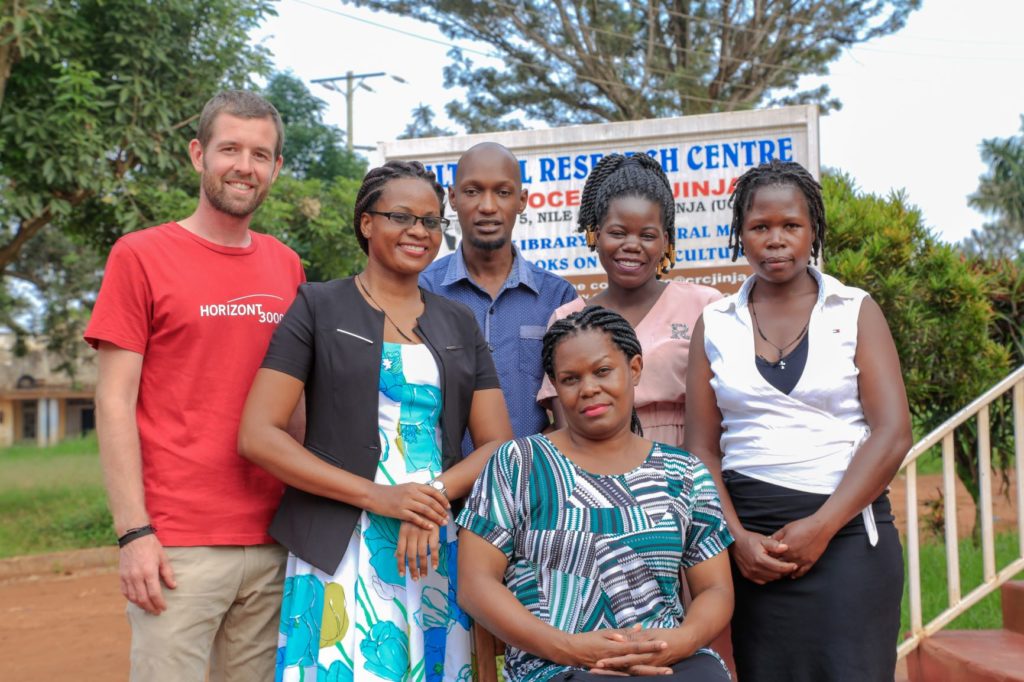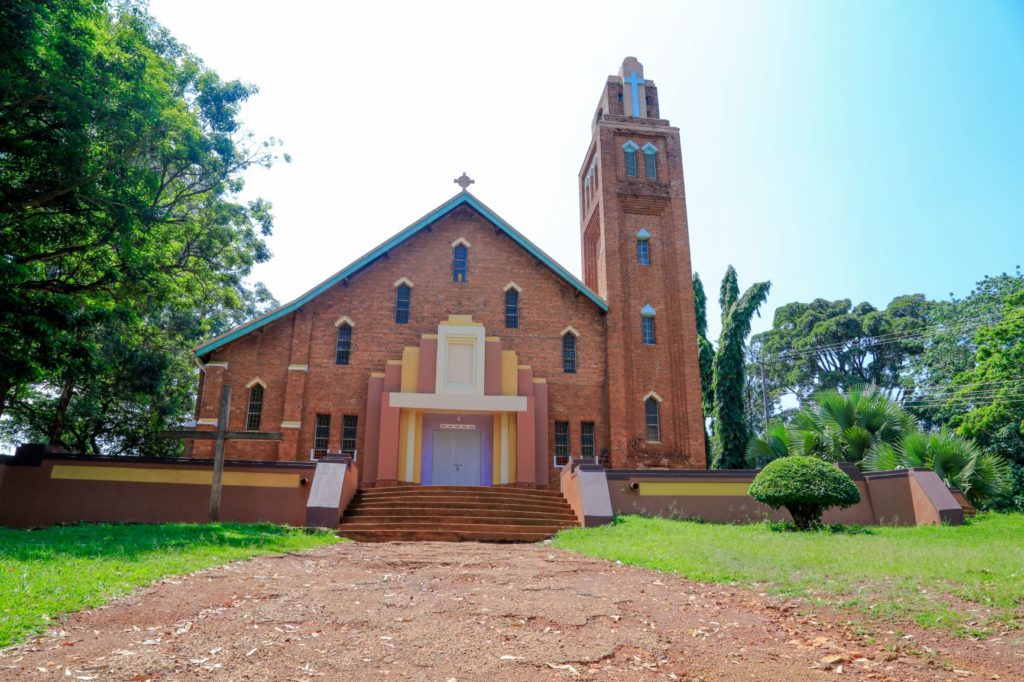Make Your Experiences Count. They Can Change the World.
LET’S BRING ALL OF OUR KNOWLEDGE AND EXPERIENCES TOGETHER.
TOGETHER WE KNOW MORE. TOGETHER WE ACHIEVE MORE. TOGETHER WE DO BETTER.
LET’S BRING ALL OF OUR KNOWLEDGE AND EXPERIENCES TOGETHER.
TOGETHER WE KNOW MORE. TOGETHER WE ACHIEVE MORE. TOGETHER WE DO BETTER.
Published: November 12, 2019
In the field of development cooperation, there are mainly two actors who implement projects, namely; faith-based organizations (FBO) and secular non-governmental organizations. Although both of them have similar aims, they are very different in terms of operation, still, when it comes to terms and definitions, the boundaries are often blurry.
For over 5 years, the Cultural Research Centre (CRC) – Diocese of Jinja in Uganda where I have worked since 2017 has tried to achieve the NGO status. When I began to work with the Centre, it was operating as a diocesan department. It means that CRC was not yet a fully-fledged entity. Many efforts have been put into the registration of CRC as an NGO since then. The main reason was to acquire more funding through attaining a legal status/certificate, which is required from most donor agencies. This transformation seems simple but implies many aspects for the running of the organisation that is worth looking at.
In this article, I reflect on some of the similarities and differences between FBOs and secular NGOs, which possibly have a great impact on the achievements of a project. In this case, the faith-based organisation is a Catholic founded institution. The following points are described briefly and should only trigger further discussions.

First of all, the motivation which drives an organisation should be looked at.
It is important to acknowledge that faith-based organisations derive their motivation from their faith where Christian values are highly distinct and deeply rooted. These values appear stronger than those of secular associations that are driven by Human Rights.
Human Rights might also be rooted in religious values, but they have developed into an independent system. Moreover, Human Rights still leave big space for interpretation, especially from different cultural perspectives. Therefore, collaborations in the context of humanity/Human Rights are still weaker and at higher risk for disputes because of a different understanding of the values which drive them.
My experience in Uganda is that people are strong believers regardless of whether in urban or rural areas. In their own words, they would say that they are God-fearing. Due to this fact and the long history of churches all over the world, I am convinced that Churches will always be there. Whereby, secular international NGOs are only coming in for a specific aim and a limited time. Many local NGOs are challenged to sustain themselves because of donor dependency.
As a TA you have to be aware of the background of the partner organisation and reflect on how to best match it with your intrinsic motivation. The most appropriate time for the reflection would be even before starting the assignment. Your values must match with those of the organisation you are going to work with.
Most of the prominent denominations are well established through an international and local structure The Catholic Church is using a strict hierarchal system and has built a very strong and influential network over the years. The strict hierarchy results in slow decision-making processes, which can have a great impact on the implementation of projects. Moreover, decision making often depends on individuals within the hierarchy rather than a consortium. A big part of the community is submissive to religious leaders and therefore more likely to listen, attend workshops and other activities organised by FBOs.
On the other hand, secular associations often depend on partnerships with local NGOs, which are selected after going through an assessment process. These typically loose partnerships often last only for the time of the implementation, which is mostly three to five years. Although some local NGOs maintain relationships over a long period of time with their main donor agencies, the partnerships remain loose. Changes in the donor’s strategy, staff or organizational structure can easily lead to withdraw of funding.
Through its approach, the church has managed to institutionalize itself and its values. Hence, it will be able to work consistently and permanently. Due to this fact, FBOs are more likely to embark on and achieve long-term goals, for example in the field of awareness-raising.
For that matter, faith-based institutions like schools and hospitals contribute much towards long-term development goals and thus remain a constant contact point for the community. In my opinion, this is the biggest strength of FBOs. Basing on their big network, they can make things move faster and overcome obstacles that secular NGOs need much time and effort to deal with. For example, leaders of FBOs are easily trusted when going through official processes in government offices, or when seeking support from the local community. On the other hand, my experience shows that internal conflicts in FBOs can lead to the hindering of helpful projects, which is less likely to happen in NGOs due to more transparent decision-making processes.
From the perspective of a TA, I claim that a more reasonable decision-making process eases your work. In FBOs individuals who are highly respected people in the society make often-incomprehensible decisions. Therefore, it is challenging to influence them.

FBOs themselves differ very much, on whom their organisations are benefitting. My observation is that Catholic programmes are more open than the ones of other denominations. Although they mainly work through Catholic structures, they also support people regardless of their religious background. Even working for a Catholic organisation without being a Catholic is possible, though climbing the career ladder may not be likely.
Secular NGOs tend to be even more inclusive concerning their beneficiaries, but also focus on specific target groups in their respective project areas.
As TA it is a motivating factor if you get the chance to interact with the direct beneficiaries of your partner organisation and you experience the success of your work. On the other hand, it becomes a bit challenging when you realise the indirect beneficiaries of a project. For whatever reason it may be, be it if for long-term relationship building or belonging to a certain status, there will be some people who will be indirectly favoured. Sometimes it is a challenge because the line between right and wrong is very thin. Policies are supposed to avoid such scenarios, but in many entities, such documents remain useless because there is no procedure to monitor their implementation.
FBOs, which have religious leaders as their managers tend to rather emphasize other aspects such as the long-term relationships to the community than on business-relevant issues. Considering the education background of a religious person, as a Priest, this is based on the nature of their calling. It is also the status of a religious person in the society that does not allow them to be questioned. Moreover, marketing, monitoring, and evaluation, finance management or other similar fields of business administration are not part of their training.
Secular NGOs are based on the principle of transparency and are fully accountable to their donors. They are also very much focused on the implementation of a specific project only which gives them no leeway. Whereby FBOs are more involved in the day to day life of the communities which they serve, making their approach more holistic. FBOs are more likely to look for long term relationships and impact than secular NGOs which are mainly after achieving set goals. Although most (international) secular NGOs are referring to the Sustainable Development Goals, their projects of mainly three to five years can only be a contribution to a long lasting change.
Over the last years, the NGO sector was professionalized. In the beginning, mainly volunteers were running different kinds of organisations to better the lives of the needy, but through a high competition and failure in achieving goals, the sector was transformed and is now adapting tools from the for-profit sector. I have observed that FBOs still struggle with these changes and requirements from secular donor organisations. It requires highly motivated staff to keep up with the pace of these developments.
The society where I grew up from (Austria) is very impatient and time conscious. My working environment in Uganda, on the other hand, gives time to everything and my colleagues are so patient when it comes to a result-oriented approach. This is often a challenge to me as a TA who wants to see things move fast to hit targets, but with time, I have learned to be patient and not to force things. If you aim for a sustainable change, you rather give it time! However, you will need to find ways on how to keep yourself motivated and do not get frustrated.
Religious people have many responsibilities. A Priest, for example, has to serve his community as a counsellor, administers sacraments and holds mass among others. They are also highly trusted people wherefore they are entrusted with things that do not fall under their direct responsibilities.
The selection of board members is a challenge to both FBOs and NGOs. People who are chosen because of who they are, are usually less self-motivated. Whereas when board members come together on their initiative, they are more passionate and this in turn benefits the organisation more.
Regarding salaries, NGOs are more market oriented than FBOs and therefore tend to pay higher salaries. Secular NGOs face a lot of competition and consequently need highly qualified staff which can only be attained through a favourable payment. On the other hand, from what I have observed, FBOs prefer to recruit, through referrals.
Another issue is the difference between salaries for international and local NGO staff which can lead to tensions and misunderstandings.
From my perspective, the gap between the local staff’s salary and mine is a true challenge. This is especially because the partner organisation’s salary structure is at a very low level and thus influences the motivation of the staff. It is understandable that when the income does not provide for a sufficient standard of living, people are always looking for alternatives to make ends meet. Additionally, a low-income range leads to poor feeding and limited access to proper health facilities, which can cause frequent absence from work. The conclusion would be that a higher income would also lead to improved performance.
In my opinion the board plays an essential role in the running of a successful organization. It is the board members who decide on a framework which will determine the possible achievements of the organization. The board is in charge of setting policies within the employees and volunteers have to operate in. The background of the organization, whether it is a FBO or NGO, defines who is chosen for the board and therefore is very crucial.
Like everything in life, both types of organizations have their advantages and disadvantages. Definitely, someone has to thoroughly consider the many implications these different types of operation have. The leaders of organizations have to decide which features are more helpful to implement successful projects. I believe business oriented NGOs are more efficient in their daily work, but FBOs might be more effective in achieving long term goals.
I am very curious about your opinions and experience and would be happy to read about them in the comments below!
Which experience do you have referring to the above-mentioned topics?
Can you think of further aspects that have not been mentioned yet?
Which organisational structure do you find more sustainable and why?